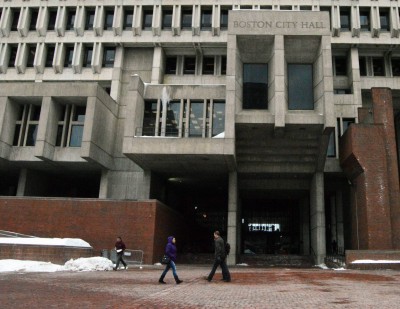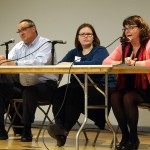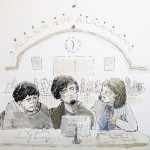Following the Jan. 8 release of a Joinder Agreement negotiated between the City of Boston and the United States Olympic Committee, Boston Mayor Martin Walsh revised the agreement to remove clauses that free speech advocates called preventative of speaking out against the City’s 2024 Olympic bid, according to a Tuesday press release.

The revised agreement eliminates previous clauses that said city employees were to respond to the bid without objection. The original Joinder Agreement prohibited any negative commentary from all City employees.
“The City, including its employees, officers and representatives shall not … communicate in any public forum, any comments or statements (written or oral) that reflect unfavorably upon, denigrate or disparage, or are detrimental to the reputation” of the Olympic games themselves, the International Olympic Committee or the USOC, stated the original agreement’s Section 2.05, which was deleted completely in the revised edition released Tuesday.
The revision was released after a month of collaboration between the Walsh’s office, the USOC and the local Olympic organizing committee. No Boston Olympics, a Boston-based organization opposing the Olympic bid, said they were “pleased” with the removal of the preventative speech clause but take issue with the mayoral office’s priorities, Kelley Gossett, co-chair of No Boston Olympics, wrote in an email.
“The mayor’s office has its hands full with so many other important challenges related to our great city, especially now during a challenging winter,” she said. “A month spent rewriting a contract is a month that could be spent doing other valuable tasks related to current needs.”
The original document was strongly opposed by the American Civil Liberties Union for its compromising of civil rights, said Christopher Ott, communications director of the ACLUM .
“We thought the original ban seemed blatantly unconstitutional, so we welcome this effort to fix that,” he said.
Additionally, a clause detailing the possibility of a voter referendum at the state or local level on the Olympic Games was added to the updated agreement. The mayor was clear, however, that although the possibility of a referendum was added, it does not foretell specific action, he said.
Several residents said they have concerns about the protection of residents’ voices in sharing their opinions about the potential for an Olympics.
Latchmi Gopal, 21, of Fenway, said First Amendment rights should be the greatest concern in moving forward with Olympic plans.
“Free speech is really important, so I’m glad to hear the mayor took that piece out,” she said.
Kristin Ahern, 44, of Dorchester, said past turmoil contributes to negative opinions regarding the bid.
“It [the Olympics in Boston] would be great, but we’ve had enough upheaval, with the Marathon bombings and everything,” she said.
Tyler Langlais, 25, of Brighton, said the Olympics required direct democratic approval, and that the revision of the agreement was a step in the right direction.
“We should go to a referendum just because of all the infrastructure that’s involved with getting the Olympics going,” he said. “There’s so many moving parts that we need more than just high end government approval of it. We need it from people individually and for the prohibitive speech. I mean, First Amendment. Why can’t you talk about your thoughts? The revision was, by consequence of that, good.”




